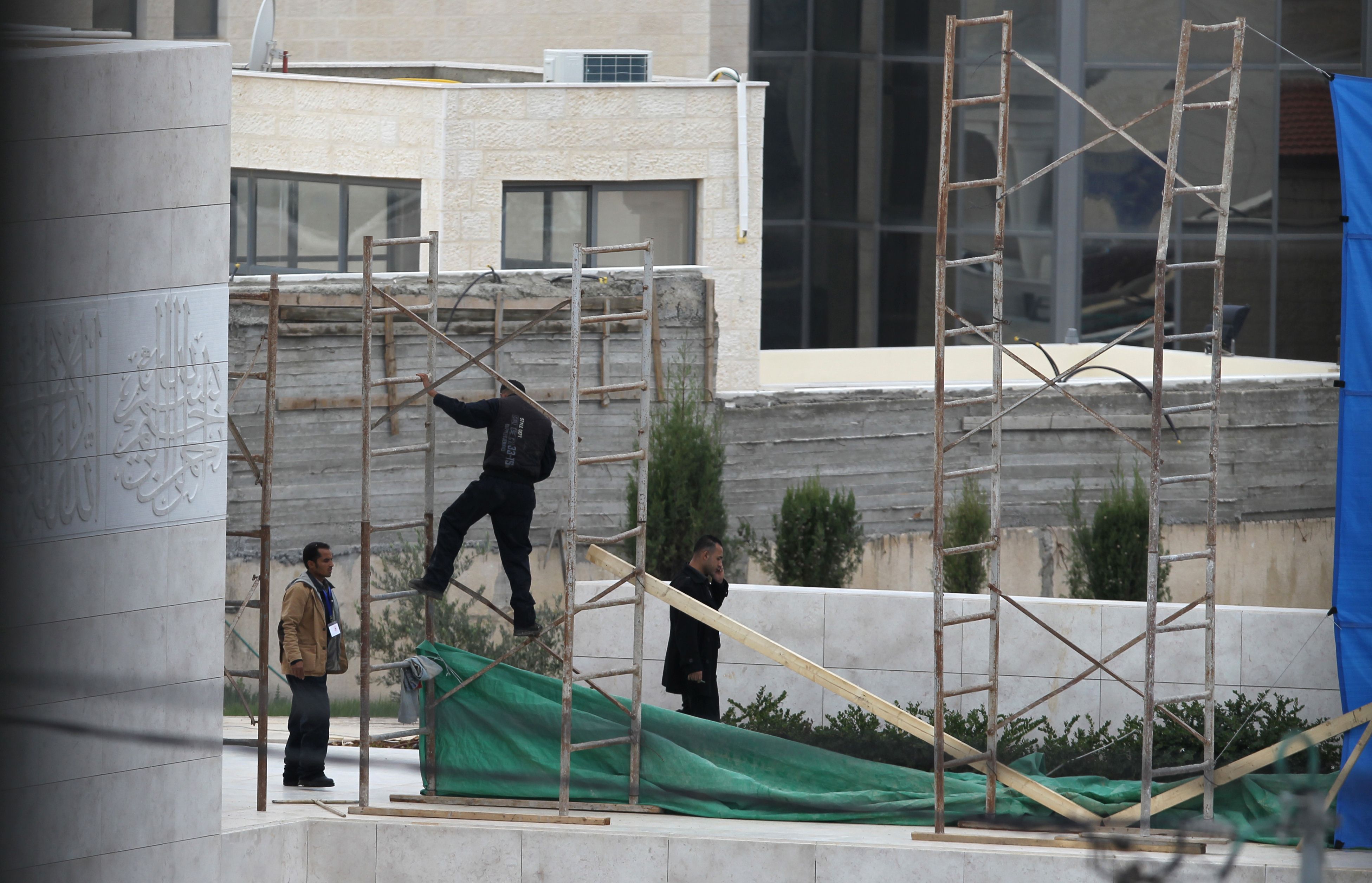By Cecile Feuillatre (AFP)

Ramallah, Palestinian Territories – One of the Middle East’s greatest political mysteries will come a step closer to being solved on Tuesday when scientists exhume iconic Palestinian leader Yasser Arafat’s remains to see if he was poisoned.
“It is very painful. It is a shock, and it is not easy for myself or my daughter,” Arafat’s widow Suha Arafat told AFP by telephone from her home in Malta ahead of the highly controversial procedure.
“But we must do it to turn the page on the great secrecy surrounding his death. If there was a crime, it must be solved.”
Rumours and speculation have surrounded Arafat’s death ever since a quick deterioration of his condition saw his passing at the Percy military hospital in November 2004 at the age of 75.
French doctors were unable to say what killed the Palestinians’ first democratically elected president and an autopsy was never performed at his widow’s request.
But many Palestinians believed he was poisoned by Israel — a theory that gained ground in July when Al-Jazeera reported Swiss findings showing abnormal quantities of the radioactive substance polonium on Arafat’s personal effects.
France followed that up in late August by opening a formal murder inquiry at Suha’s request. Polonium was the same substance that killed Russian ex-spy and fierce Kremlin critic Alexander Litvinenko in London in 2006.
Israeli Prime Minister Benjamin Netanyahu’s spokesman Mark Regev dismissed the probe as misguided.
“Israel was not involved in the death of Arafat,” Regev told AFP in July. “All the medical files are in the hands of the Palestinians and it was not Israel who is preventing their publication.”
The laborious process at the site of Arafat’s mausoleum in the West Bank’s Muqataa complex from which the late leader ruled will see French experts work alongside colleagues from Switzerland and Russia.
The Swiss are here because they were the first to analyse the Arafat samples submitted to them by Al-Jazeera.
The Russians’ presence has not been fully explained by the Palestinians. However the country is responsible for most of the world’s polonium production and should therefore have the expertise to handle remains of the dangerous substance.
Tuesday’s operation will be hidden from the public by a blue plastic sheeting designed to give discretion to a procedure that many — including some family members – have compared to a desecration.
The exhumation echoes “some highly sensitive issues,” one Western diplomat in Ramallah conceded as workers prepared to assume their unusual task.
Experts believe that little will remain of Arafat’s tissue and that the scientists will only be able to secure samples of his bone — which may have degenerated into powdered form — or threads of his clothing.
Some experts have also questioned if anything conclusive will be found because polonium has a short half-life and dissipates quicker than some other radioactive substances.
But the Palestinians have already launched preliminary work on the grave and all the pieces are in places for the samples to be taken away for subsequent analysis in France.
Tawfiq Tirawi, head of the Palestinian inquiry team, said the tomb will be opened on Tuesday, samples taken and a reburial ceremony held the same day.
Not all the Arafat family members are pleased.
The late leader’s nephew Nasser al-Qidwa — one of the most vocal critics of the entire process — said he found the whole process disturbing and akin to a “desecration.”
“No good can come out of this at all,” Qidwa said in an interview. “It does no good to the Palestinians.”
Qidwa argued that most people in the West Bank already believed that Arafat had been poisoned and did not require any further proof.
“I do not understand this exhumation,” he lamented. “The French took all the samples they wanted (at the time of his death).”
Some of those watching the preparations get underway in Ramallah tended to agree.
“This is a waste of time,” said a young courier named Mohammad Hussein.
“They might find out how he died but not who killed him — the Israelis or the Palestinians,” he said in reference to political rivalries that gripped the territories’ leadership at the time of Arafat’s death.
“But Arafat is dead, and there is nothing that can bring him back.”
